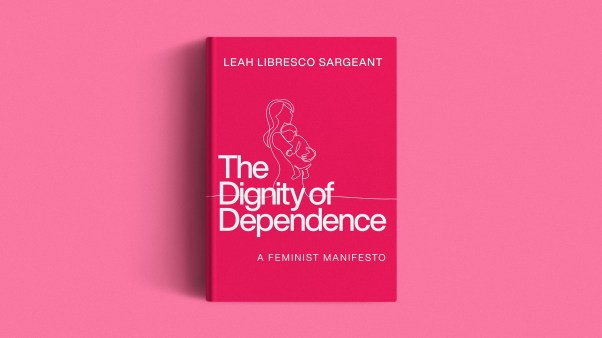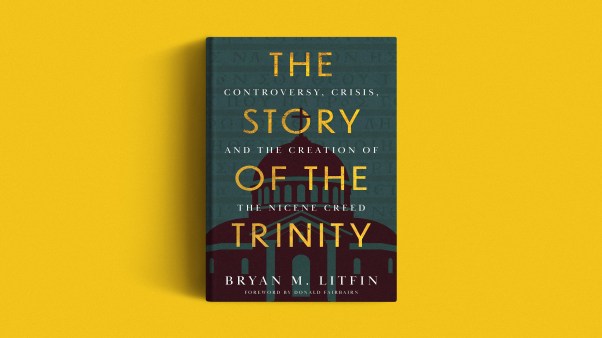What do the stories of a grieving mother, a couple traveling to India, and a fictional character have in common? All three stories involve people using reproductive technology to have a baby.In aLadies Home Journal article,Jackie Hance describes the incomprehensible loss of all three of her young daughters one summer afternoon. On July 26, 2009, Hance’s sister-in-law, Diane Schuler, was driving the girls and her own kids home from a camping trip when she drove the wrong way on New York’s Taconic State Parkway. In a head-on collision, the three Hance girls, along with Schuler, Schuler’s two-year-old daughter, and three passengers in the other car died. An autopsy indicated that Schuler had been drinking and smoking marijuana, although Schuler’s husband insists that there must be another explanation.
Hance describes how she has survived such a loss, supported by friends who cooked meals for an entire year and continued to come get her for their morning runs. She also accepted a fertility doctor’s offer of free IVF services (Hance previously had a tubal ligation). The treatment gave her something to focus on, though she wasn’t sure she could go through with having an embryo transferred to her womb. But then she had a dream.
I was standing in heaven and I could see Emma, Alyson, and Katie through these big gates. God would not let me inside the gates. He said that I had been given a gift from that doctor and I had to use his gift before I could be with my babies. So, almost in a daze, I told the doctor I wanted to try to get pregnant, never expecting it to work.
I got pregnant the very first time.
Several weeks ago, the PBS NewsHour showed clips from a film titled Made in India, about Western couples hiring poor Indian woman as gestational surrogates. The film focuses on an American couple in which the wife had a hysterectomy due to pre-cancerous cells in her uterus. Because she retained her ovaries, she and her husband could have a genetically related child using a gestational surrogate. Unable to afford IVF and surrogacy in an American clinic, they turned to India, where a mother of three agreed to bear their child in return for several thousand dollars.A home video clip shows the couple opening an e-mail with news that the Indian surrogate is pregnant. They whoop and embrace; their dream of being parents is coming true. The father talks about how unfair it is for outsiders to ask them, “Why don’t you just adopt?“
Finally, I just finished reading novelist Jennifer Weiner’s new book, Then Came You, which chronicles the lives of four women involved in a surrogacy arrangement. (Disclosure: I liked this book, but it has sexual themes that some blog readers might object to.) India, a petite 43-year-old beauty thanks to multiple plastic surgeries, punishing exercise, and a strict diet, is the self-described “trophy wife” of a wealthy older man with three grown children. India and her husband, Marcus, hire a gestational surrogate to carry a baby conceived with Marcus’s sperm and a donor egg. Jules is the Princeton-educated egg donor who uses the money she gets for her eggs to pay for her addicted father’s rehab. Annie is a happily married mother who sees surrogacy as a chance for her family to stop living hand-to-mouth. Bettina, Marcus’s grown daughter, is convinced that India is not what she appears to be, and sets out to find the truth about her stepmother’s past.
In aninterview with New York Times writer Lisa Belkin, Weiner said that the true story of Alex Kuczynski planted the seed for her novel. I vividly remember reading the New York Times Magazine article in which Kuczynski described the process of having a baby with her older husband using a surrogate. Like many readers, I was troubled by the article and photos, in which Kuczynski came across as extremely entitled. Weiner told Belkin, “I read [Kuczynski’s account] and I wondered: What led her to this? What’s this woman’s real story?”
Seeking the “real story” is central to reproductive ethics. I was sympathetic to the characters (real and imagined) in these three stories. While I have concerns over how IVF tempts parents to believe they can completely control childbearing, I am glad that Hance will once again wake to the sound of a child’s voice calling for her. While I think that outsourcing pregnancy to poor women in India raises urgent moral questions, I bristled along with the husband baffled by people who, in a paraphrase of his words, put the weight of the world’s orphan crisis on the shoulders of infertile couples. And while I was turned off by Kuczynski’s surrogacy story, I appreciated Weiner’s attempt to show that every human is multidimensional, full of both dark and light. Everyone has a story—one that cannot be fully told in a sensationalized magazine article.
Hearing these stories makes it harder for me to judge whether technologies such as IVF and surrogacy are right or wrong. Does my empathy for individual’s emotionally charged, complex decisions mean that I believe that anything goes, any decision is morally acceptable, as long as it makes someone feel better?
In a word, no. Stories matter. But stories are not all that matter. In my post tomorrow, I’ll introduce the concept of “narrative ethics,” which puts people’s stories at the center of ethical discourse. I’ll name some of the benefits and limits of this approach for Christians.








